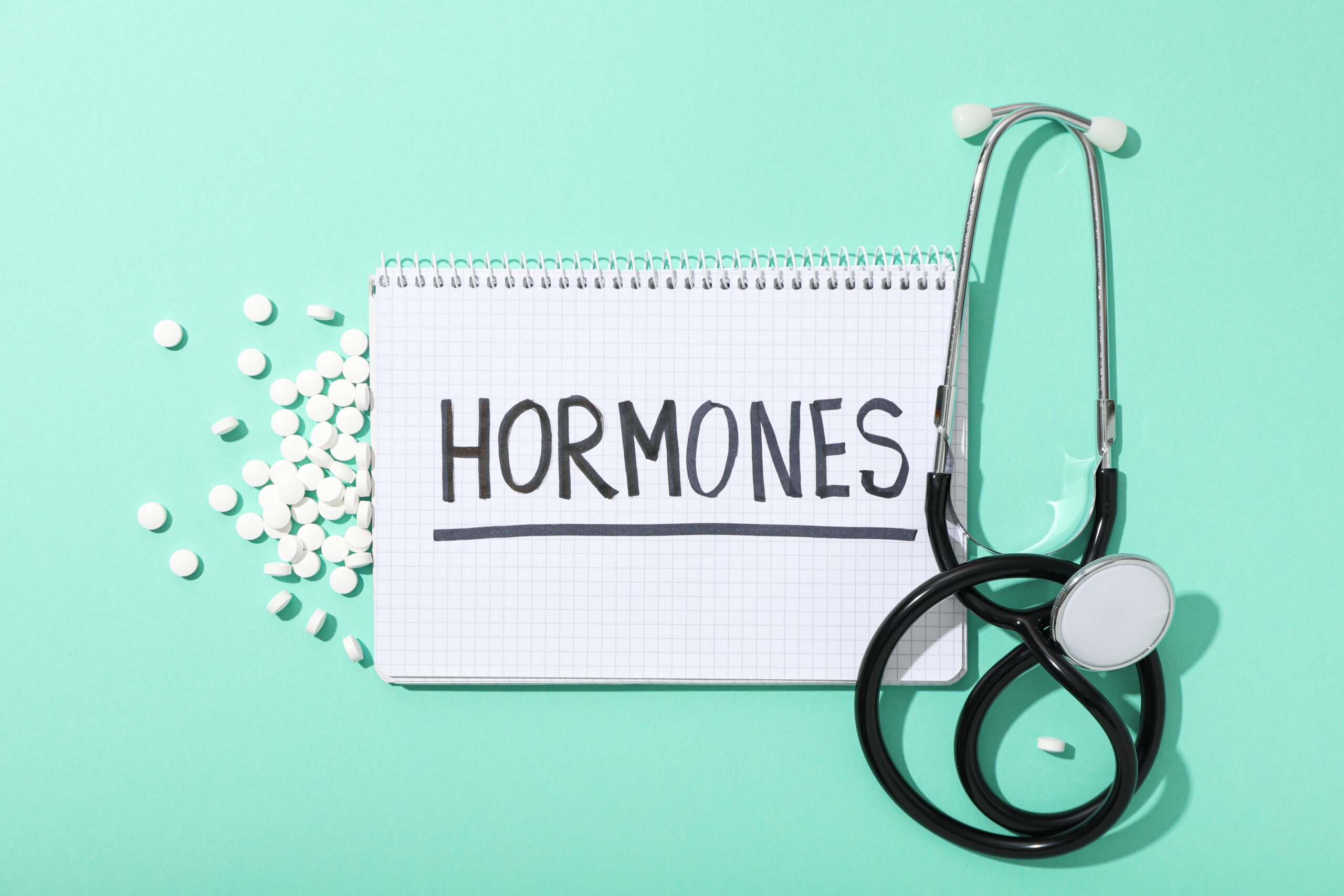There is a strong link between thyroid and fertility, with conditions such as hyperthyroidism and hypothyroidism affecting a woman’s ability to conceive. A woman with an untreated thyroid condition, will often have an irregular period and/or difficulty with ovulation, or difficulty maintaining a pregnancy. If you are trying to get pregnant, it is very important to understand how thyroid or hypothyroidism and fertility are connected.
How Is Thyroid and Fertility Related?
The thyroid gland is responsible for producing hormones that regulate ovulation and menstruation. With an imbalance in the thyroid hormone levels, either too high (hyperthyroidism) or too low (hypothyroidism), ovulation can be disrupted, leading to difficulties in conceiving. Women with thyroid problems often experience irregular periods or no ovulation at all. Addressing TSH levels for conception is essential for restoring fertility. Additionally, thyroid hormones are essential in many of the processes that occur during a pregnancy, such as embryo formation, uterine lining receptivity/implantation into the uterus.
Hypothyroidism and Fertility
Hypothyroidism is a condition that affects the reproductive hormones due to lack of thyroid hormone resulting in a slower metabolism in the body. Low levels of thyroid hormone can alter a woman’s cycle as well as decrease her chance of conceiving. Women who experience hypothyroidism are at an increased risk of having complications during their pregnancies including miscarriage or premature delivery. Therefore, it is important that women with hypothyroidism attempt to become pregnant, consult with specialists on the best medications and precautions to take during their pregnancy.
Thyroid Autoimmunity (TAI):
Thyroid Autoimmunity (TAI) is the most prevalent autoimmune disorder in women of childbearing age. The incidence of TAI is higher in women with infertility. The presence of TAI or anti-thyroid antibodies indicates an immune imbalance that is related to the difficulty in implanting an embryo. Additionally, women with TAI also tend to have other autoimmune antibodies that are present, adding to the difficulty in conceiving and causing miscarriages.
Hyperthyroidism and Fertility
Hyperthyroidism is defined as an overactive thyroid, resulting in increased metabolism, leading to excessive production of thyroid hormones. Hyperthyroidism can also cause problems with ovulation and create difficulty in getting pregnant. Hyperthyroidism can also lead to pregnancy complications including preeclampsia and premature delivery if left untreated. To promote a healthy pregnancy, the medical management of hyperthyroidism is critical in regulating the levels of thyroid hormones, thus improving fertility.
Managing Thyroid Disorders in Infertility
If you have been diagnosed with a thyroid disorder, it is essential to collaborate with your healthcare provider to manage your thyroid health prior to conception. Regular thyroid function testing, appropriate medication management, nutritional balance will help you achieve optimal fertility. Furthermore, your thyroid function should be monitored throughout your pregnancy, as thyroid hormone adjustments may be necessary to ensure a healthy pregnancy.
Clinical guidelines recommend thyroid levels for pregnancy to be below 2.5 mU/L, and this goal should be achieved at least 4 weeks prior to the commencement of your IVF cycle. In order to maintain optimal TSH levels for conception, women with TSH level of 2.5-4 mU/L and thyroid autoimmunity require thyroid hormone supplementation during reproduction.
When to Seek Medical Advice
If you have been attempting to conceive for more than 6 months and suspect thyroid disorder, consult a fertility specialist. Testing for thyroid disorders causing infertility is a very simple procedure; early detection of a thyroid disorder may increase your chances of conception. To decrease the risk of complications during your pregnancy and to improve foetal development, it is essential that your thyroid health is optimal.
Conclusion
Thyroid and fertility are very closely linked; it affects your ability to conceive and maintain a healthy pregnancy. It is very important for those receiving fertility treatments to achieve normal thyroid function before beginning treatment to ensure positive outcomes. If you are having difficulty conceiving due to thyroid issues, your doctor can help you manage your condition better and increase the chances of having a baby with appropriate treatment methods. If you are trying to become pregnant naturally or via fertility treatments, you should consult your physician about the state of your thyroid for a successful journey to parenthood.
FAQs:
- How is thyroid-related infertility diagnosed?
Thyroid-related infertility is diagnosed through blood tests that measure levels of thyroid hormones (TSH, free T3, and free T4). Your doctor may also check for other hormonal imbalances. - Should I continue taking thyroid medication during pregnancy?
Yes, it’s crucial to maintain appropriate thyroid hormone levels throughout pregnancy. Your doctor may adjust your medication dosage to ensure a healthy pregnancy for both you and your baby. - Can I conceive if I have hypothyroidism?
Yes, with proper medication and monitoring, many women with hypothyroidism can conceive successfully. It’s important to control thyroid hormone levels before and during pregnancy.





